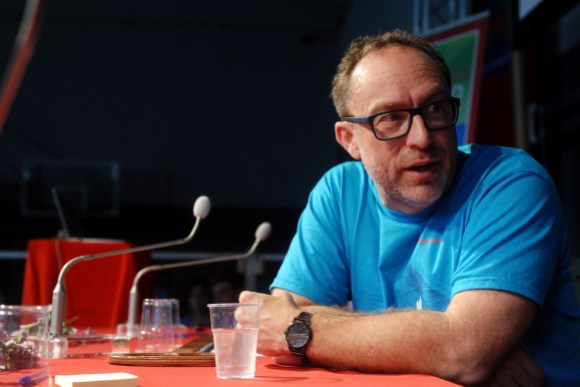
With 16 successful years of Wikipedia and its sister projects, what do you foresee in the future of these projects over the next two decades?
I remain very excited about the future—we’ve done a lot already, but there is still a lot left to do. I’m particularly interested in helping Wikipedia grow both in size and in quality in the languages where we are currently small, and in the languages which are just now coming online in big numbers.
One of the things we are seeing today is that our work is being reused in new ways—for example to answer questions with voice-activated speakers like Amazon Echo and Google Home. On the one hand this is wonderful—another form of fulfillment of our longterm vision of free knowledge for everyone. On the other hand it provides us with some challenges if the public doesn’t understand who to thank for looking after all this knowledge!
There has been a lot of discussion about Wikimedia’s gender gap and “Gender bias on Wikipedia”. While we’ve made strikes with leading women editors from many countries, including many developing countries, what is your view on it?
I think it is a real issue and one that we should all be thoughtful about. I think it is clear that people with different backgrounds and perspectives bring strengths and interests to Wikipedia so that diversity is important to the quality of the work.
One of the main things we can do in our community is work to make sure that we have a friendly and welcoming environment for all kinds of newcomers.
What are your observations on the role of Wikimedia chapters across the world?
The chapters have done and continue to do great work. I’d call out a couple of key things that have worked really well and another that I think remains an elusive opportunity.
First of all, the chapters are really the front line in terms of global communications—interacting with the media to explain what Wikipedia is. This often has a strong local dimension to highlight achievements or handle problems that come up all around the world. The team in San Francisco can’t really do this; it requires significant local knowledge.
Second, the chapters have been incredible at forging local GLAM partnerships and supporting things like Wikipedian-in-residence programs. Again this is something that requires significant local understanding and contacts, and therefore something that should be done locally.
And then I’d say there’s an elusive opportunity: how can the chapters act to increase the quantity and quality of editing. Many things have been tried and some are more successful than others. I think we should see more experimentation leading to more sharing of best practice in this area—how can chapters help the editing community to grow? It seems easy but it has proven to be very hard to actually track what works and what doesn’t.
I don’t mean this last point in a negative way, I just mean: I think there’s something big here that we collectively haven’t fully figured out yet!
Of all the countries in the world, India has 23 live Wikipedia language projects and 17 incubator projects. How do you see the future of Wikipedia projects in India?
India is of crucial importance. It is as big and diverse as Europe, and yet it is still one nation. There is a steady rise in access to the Internet in India, but there are obviously still difficult challenges around access and educational attainment. Through Hindi and English, the different language communities of India have a strong ability to collaborate with each other and this is an opportunity for sharing best practices, for engaging a wider community, etc.
One misconception that I find with people who don’t know India is that “most people in India speak English.” This isn’t true. So while English provides a powerful way for the educationally elite of India to communicate with the world, Indian Wikipedians may face the problem that lots of people just assume that English Wikipedia is somehow “more important”—it isn’t, not in a fundamental sense. All the languages of India are important, because most people do not speak English, and especially those who are most in need of free knowledge!
While Wikipedia has been able to develop in about 300 languages, some of the other Wikimedia projects like Wikisource have not been able independently develop beyond 65 languages. How do you see the future of the movement’s non-Wikipedia sites?
I think it is very hard to say. What I hope is that we find ways of growing our communities globally so that more volunteers are available to work on non-Wikipedia projects.
What message would you like to share with Wikimedians across the globe about their volunteering efforts and the valuable outcomes seen by the success of these projects?
These are difficult times politically. In just about every part of the world we are seeing something that feels very counter to the values of our movement—an increase in rhetoric against foreigners or “others” of all kinds. I am not making any comment on real political issues such as “what should immigration policy be in various countries?”, other than to say that those decisions should be made in a context of factual argument rather than arguments that appeal to fear and hatred.
Wikipedia can be a powerful force for peace, if we remain a powerful force for facts and free knowledge.
Interview by Syed Muzammiluddin, Wikimedia Community Volunteer

Can you help us translate this article?
In order for this article to reach as many people as possible we would like your help. Can you translate this article to get the message out?
Start translation